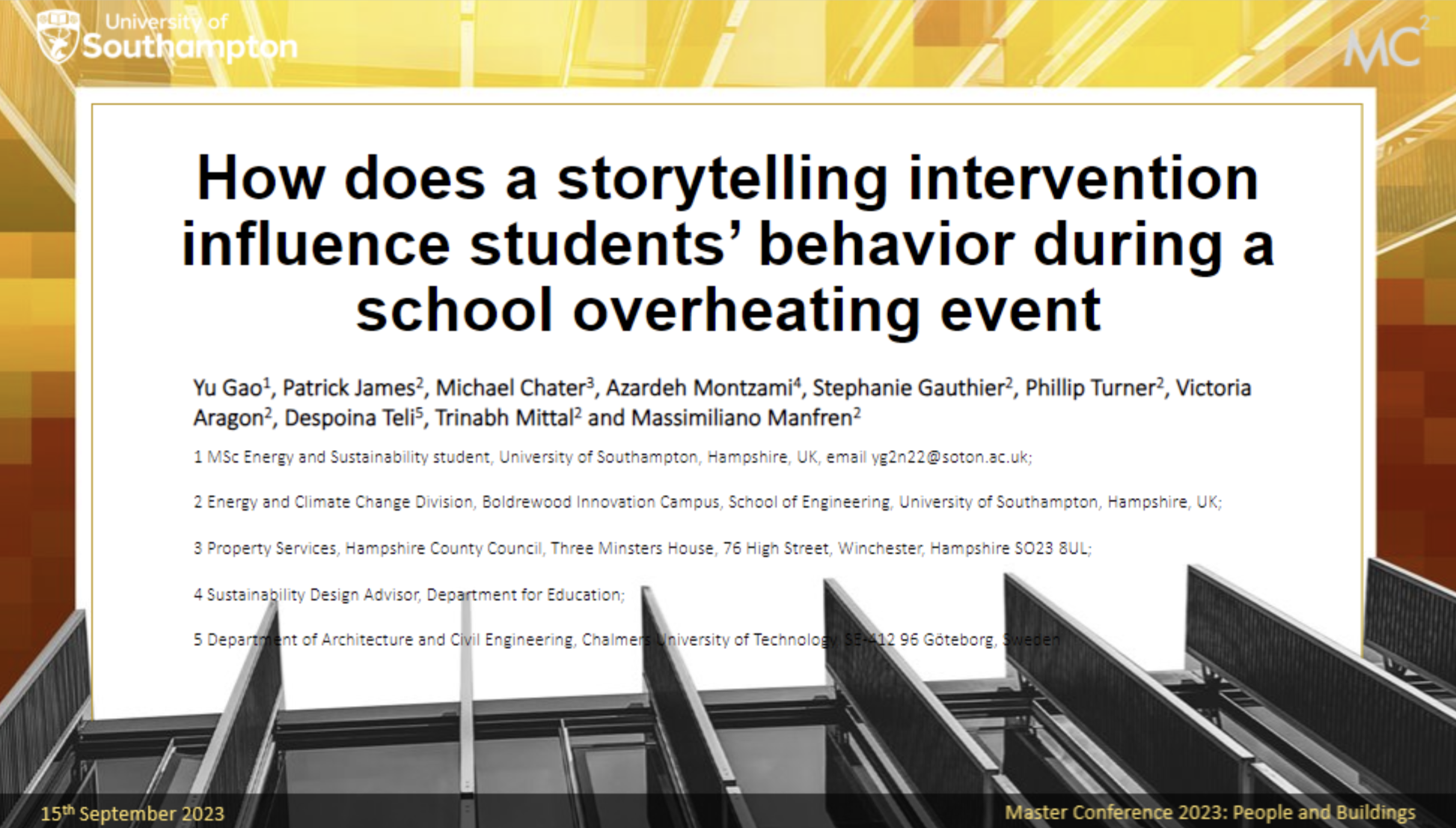Yu Gao, an Energy and Sustainability MSc student supervised by Prof. Patrick James has won the best paper award at the 2023 People and Buildings Conference for Masters Students held at the School of Architecture and Cities, University of Westminster, UK on Friday 15th September 2023.
Yu Gao won the award for her paper on How does a storytelling intervention influence students’ behaviour during a school overheating event (see abstract below) which she presented during the Occupants, Wellbeing and Comfort session. The MSc was connected to the ongoing overheating risk assessment project in collaboration with Hampshire County Council which looks to understand overheating risks in their school building stock since 2021.

Across the day there were 26 papers across 4 sessions presented by MSc students from across Europe with the conference providing a forum for students of different institutions to discuss short papers by Masters students who are near the end of their course or who have completed in the last two years. With the subject of their paper reflecting the content of their Master dissertation.
For further information on the conference and to read Yu Gao’s winning paper (once published) please visit https://events.nceub.org.uk/mc2023/.
PAPER ABSTRACT
A new story, “The Hottest Day in School”, was designed as a pre-heatwave intervention to enable children to have confidence to change their behaviour in school, such as drink more water during a heatwave. A control: intervention approach was taken for two schools, where 5 classes were read the intervention story following an advance high temperature warning being issued.
On the high temperature day, researchers visited classes and asked children to complete a sticker task to reflect on “my day” and “my better day”. 13 stickers were available to choose from including actions (such as remove clothing) and thermal comfort statements (such as too hot). Sticker diaries of children in the intervention classrooms show a higher frequency of stickers which reflect the heatwave messaging in the story than control classrooms. KS2 intervention classroom children were found to be twice as likely to select heatwave messaging stickers (ch-square test, p=0.03).
